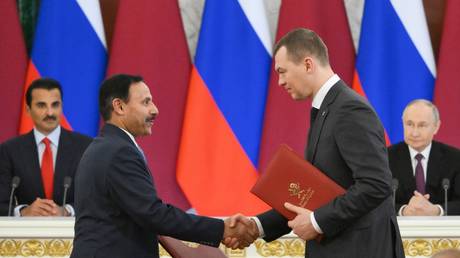Economic Cooperation Across the Straits Stifled Following Taiwan Election
Cross-Straits economic cooperation suppressed after Taiwan election

Editor's note: Wang Hua is from the Graduate Institute for Taiwan Studies of Xiamen University. The article reflects the author's opinions and not necessarily the views of CGTN. It has been translated from Chinese and edited for brevity and clarity.
With the dust settled on the Taiwan regional leadership election, the future development of cross-Straits relations faces greater challenges and uncertainties. In the economic and trade sector, if Taiwan authorities fail to return to the path of the "1992 Consensus," the Chinese mainland will continue to intensify trade countermeasures, particularly suspending tariff concessions for more products under the Economic Cooperation Framework Agreement (ECFA).
Since the signing of the ECFA, economic and trade exchanges between the two sides of the Taiwan Straits have been noticeably unequal. In the ECFA's "early harvest" list, the mainland reduced tariffs for 539 products from Taiwan, while Taiwan reduced tariffs for 267 products from the mainland.
As of 2022, Taiwan had enjoyed tariff preferences for exports to the mainland accumulating to approximately $134.53 billion under the ECFA, with tariff concessions amounting to $8.52 billion. In contrast, the mainland had enjoyed tariff preferences for exports to Taiwan of about $25.1 billion in total under the ECFA, with tariff concessions of $970 million. Taiwan has thus benefitted significantly more than the mainland.
Throughout this process, Taiwan not only failed to fulfill commitments related to the ECFA, that is, "gradually reducing or eliminating tariff and non-tariff barriers to trade in a substantial majority of goods between the two parties," but also continued to adopt various discriminatory measures restricting the import of goods from the mainland. An investigation report on trade barriers released by the Ministry of Commerce at the end of last year indicated that Taiwan has imposed restrictions (even bans) on more than 2,500 types of agricultural and industrial product imports from the mainland without clear reasons and procedures, which constitutes de facto trade barriers.
In order to promote the development of cross-Straits relations and enhance the well-being of people on both sides, the mainland has maintained the highest degree of goodwill, making unilateral concessions in cross-Straits economic and trade exchanges in the medium and long term. However, Taiwan authorities not only refuse to acknowledge the benefits they have received but also instigate local media to distort and even stigmatize the mainland's goodwill. They intend to keep the Taiwan people blind to the benefits they have received. This increasingly deviates from the initial intention of various sectors on both sides of the Taiwan Straits to promote the normalization and liberalization of economic and trade relations. In light of this, it is entirely reasonable for the mainland to take necessary countermeasures.
At the end of last year, the Customs Tariff Commission of the State Council announced the suspension of tariff concessions for 12 products in the "early harvest" list of the ECFA. Then, on January 9 this year, the Ministry of Commerce stated that it would take further measures to suspend tariff concessions for more ECFA products, sending a clear signal: If Taiwan cannot embrace the ECFA as the mainland does, the mainland will be bound to intensify its countermeasures – after all, the 12 products whose tariff concessions have been suspended represent only a small portion of the "early harvest" list of the ECFA. In the future, the pattern of unequal openness and unilateral concessions between the two sides of the Taiwan Straits will eventually return to the normal state of rule-based regular exchanges.
At the same time, we should also recognize that tariff concessions within the scope of the ECFA are only a minimal part of cross-Straits trade and will not have a significant impact on the main part of cross-Straits economic and trade exchanges. In the context of the reconstruction of the global value chain, changes in the future investment layout of Taiwan businesses may have a more critical impact on the pattern of cross-Straits economic and trade exchanges. This is an aspect that the mainland should pay more attention to when formulating Taiwan-related economic and trade policies.
OB TROIB News
Find more stories on Business, Economy and Finance in TROIB business












